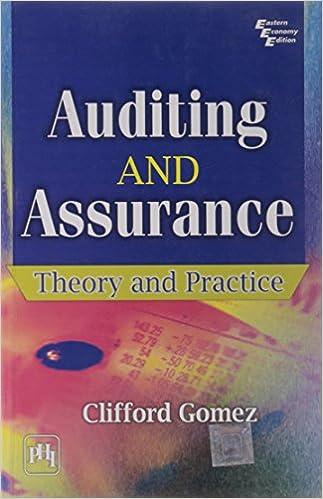Question
Andrew inherited 500 acres of land in rural West Virginia from his father. This property, called the Stonebreaker Farm, is heavily wooded, includes some pastures,
Andrew inherited 500 acres of land in rural West Virginia from his father. This property, called the "Stonebreaker Farm," is heavily wooded, includes some pastures, mountainous terrain, a large fishing pond, a natural spring, and a series of logging roads for when portions of the property have been timbered over the years. Two cabins exist on the Stonebreaker Farm; one cabin is on the lower pasture and another cabin is on the upper mountain. The property has been primarily used seasonally for hunting, fishing, and weekend family excursions to ride four-wheelers through the logging roads and hillsides. No one lives permanently on the property. Chet lives on and owns 75 acres adjacent to the southeast border of the Stonebreaker Farm. Chet has never gotten along with Andrew or his father. In 2005, Chet asked Andrew if Andrew would consider selling Chet the 10 acres of the Stonebreaker Farm that bordered Chet's property, but Andrew declined because he believed large trophy-quality deer roam that portion of the property and he wanted to keep the property to hunt there. In his will, Andrew has planned to leave the 500 acres of the Stonebreaker Farm to his son, Garrett, and wants the property to be kept in the family. Chet grows and produces ginseng, a very lucrative and rare crop that requires very specific growing conditions. Chet knows that the 10 acres of the Stonebreaker Farm adjacent to his property would be perfect for cultivating high-quality expensive organic ginseng. This 10 acres is made up of a large east-facing hillside with dense forest of deep-rooted trees and a canopy of shade, making it ideal for gingseng cultivation. The 10 acres is also hidden from public view, not near any of the logging roads, and difficult for Andrew to access given its densely wooded and hilly terrain. Chet has never seen Andrew or his family on this 10 acres, but he has seen several large trophy-quality deer on the property. In 2009, Chet decided to start growing a large crop of ginseng on the 10 acres and built multiple raised beds to start the wild-simulation method, which takes roughly 8 years for the gingseng to mature. Now, in 2017, Chet thinks his crop is ready to harvest for over $100,000 in profit. However, he needs a permit from the state of WV to sell the organic ginseng. Chet called the local extension office to obtain the permit. Chet filled out a form stating he owned the property on which the ginseng was grown. A month later, Andrew discovered the crop while walking the property and confronted Chet. Andrew has filed a lawsuit against Chet for trespassing and Chet wants to file a counterclaim against Andrew for adverse possession. In the litigation, you have been asked to value the ginseng crop. You are working with Chet's attorney to determine the overall strength of Chet's case and whether he can acquire title to the land. Discuss the strengths and weaknesses of Chet's claim. Is Chet likely to succeed?
Step by Step Solution
There are 3 Steps involved in it
Step: 1

Get Instant Access to Expert-Tailored Solutions
See step-by-step solutions with expert insights and AI powered tools for academic success
Step: 2

Step: 3

Ace Your Homework with AI
Get the answers you need in no time with our AI-driven, step-by-step assistance
Get Started


